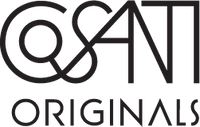
Travis Mielke has been a beloved member of the Paradise Valley Foundry team since joining the crew in November of 2021. We often describe our team as more of a family than coworkers⎯a sentiment with literal truth in Travis's case. Not only is he the cousin to our longtime Foundry Manager, Warren Steckel, but he's also the son of our Customer Service & Sales Specialist, Cass Mielke, who you've probably had the fortune to speak with if you've ever reached out to us over the phone with questions or for help with an order.

On January 21st, Travis and his girlfriend⎯a fellow Cosanti Artisan⎯Landry Low, were in a rollover car accident that resulted from hydroplaning as they turned onto the 51 southbound at Cactus Road. Travis will be the first to tell you that despite being left paralyzed from the chest down from two spinal fractures and the long list of additional injuries (including 10 broken ribs, a fractured hand, multiple pelvic fractures, a broken scapula, a laceration to the back of his head, and a variety of abrasions and contusions), they were both incredibly lucky.
Since the accident, Travis has undergone multiple surgeries, spent a week in the ICU before being moved to the trauma floor of John C. Lincoln, where he spent an additional two weeks. He then moved to HonorHealth Pima Acute Rehabilitation Hospital where he works every day to build his strength and learn the skills he needs to recalibrate to his new body and life.
To read more about his story and/or contribute to his recovery fund, visit his GoFundMe campaign online and share it with anyone you know that may be able to support him and his family as they continue navigating life after spinal cord injury.
In the meantime, we have been hard at work to assess the upgrades needed in our foundry and around our site to enable him to return back to doing the work he loves when he's ready.
From its early days, Cosanti served as a proving ground for experimenting with ways to design and build our urban spaces to sustain human culture and environmental balance. Paolo and Colly Soleri's residence on this plot of land predates the incorporation of the very town that would grow around it in the decades to follow.

Cosanti Ceramics Studio ca. 1958, provided by The Cosanti Foundation
It's no secret nor surprise that when Cosanti's primary structures were built in the 50s and 60s, accessibility for those with mobility concerns were not at the forefront of Soleri's mind. The consequences for this societally-entrenched lack of foresight would not escape even Soleri himself, who continued living and working into his 90's on-site at Cosanti. In the years preceding his death, Soleri's own natural, physical decline would increasingly hinder his ability to navigate the experimental site he called home, preventing his access to the studio spaces he built just steps from his front door so many decades prior.
In the United States, the conversation surrounding public access took a pivotal turn with the passing of the American Disabilities Act (ADA) in 1990. This landmark legislation formalized into law what the Architectural Barriers Act (ABA) in 1968 first acknowledged⎯that the way we plan and design our constructed surroundings has the power to impact an individual's quality of life and their ability to access and contribute to the community around them.
Soleri's visionary perspective on architecture's role in shaping our daily life and functions identified the value in designing cities as living systems that are able to evolve for the increasingly complex and diverse needs of its inhabitants. This engrained philosophy has been a driving force behind the ongoing effort to expand upon the possibilities of what this historic space could offer those who explore its grounds today.


Top Photo: Cosanti Ceramics Studio ca. 1958
Bottom Photo: Aerial View of Cosanti ca. 1965
Images provided by The Cosanti Foundation
Over the years, important upgrades have been made around our property in Paradise Valley to improve the accessibility for our guests visiting this historic site. In 2022, we began work on our biggest ADA improvement project to date, The Pink House. Our goal with this project is to restore Pink House, Paolo Soleri's original home at Cosanti, to serve as an accessible, climate-controlled office and meeting space, equipped with a newly-built wheelchair-accessible bathroom for both our employees and our guests.
Although Pink House has been weathered and worn since it was built in the 1940s, we believe in its potential to adapt to the evolving needs of those who seek its shelter today. Two principle tenets in Soleri's work prescribes Embodied Efficiency and Creative Resourcefulness⎯"Do more with less", his common axiom. In this spirit, we endeavor to restore and highlight both the interior and exterior to reflect the historic legacy of this building while integrating improved materials, infrastructure, and adaptive design features that will allow this space to continue to evolve with the community it serves.

Pink House, 2022, provided by The Cosanti Foundation
We are excited to share more details about this project as it progresses, including ways to participate in realizing these goals. To contribute information and/or resources to the early stages of this project, reach out to us by emailing info@cosanti.com or by phone at 480.948.6145, so we can connect you with a staff member from our ADA Development Team.
Subscribe to our newsletter to stay up-to-date on what's to come and to keep up with Travis's progress as he continues recovering. On behalf of the family of artisans and staff members that comprise our Cosanti Originals team, we thank all of those who have extended their support to Travis and his family. We encourage you to continue sharing his story and we look forward to welcoming him back to a further evolved Cosanti.

